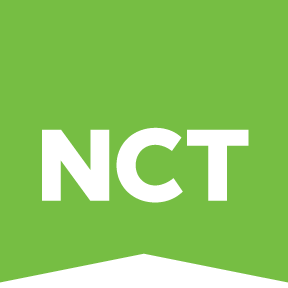Efficiency and compliance are key elements in the fast-paced world of health and human services. Social workers and caseworkers are always multitasking with their responsibilities and they often deal with mountains of paperwork and complex regulatory requirements. A documents management system with e-signature integrations offers a powerful solution to streamline workflows, improve accuracy, and enhance compliance. Many human services programs want to know — how do e-signatures improve efficiency and compliance in human services — and NCT Inc. may be able to answer your questions.
NCT CaseWorks is a comprehensive document management system with robust e-signature capabilities that allow human services organizations to embrace a digital-first approach, save time, reduce errors, and ensure adherence to legal and ethical standards. With both internal and external e-signature features, NCT CaseWorks provides a seamless and secure way to manage documents and obtain signatures electronically.
How E-Signatures Benefit Health and Human Services Programs

E-signatures provide a wealth of benefits for health and human services programs, with efficiency and compliance being key advantages. This innovative feature eliminates the need for paper-based processes, streamlines employee workflows, reduces administrative burdens, and improves overall productivity. Internal e-signatures will benefit social workers, caseworkers, and case managers with automated signatures on internal, confidential forms. External e-signatures allow clients and patients to sign important documents that they need, quickly and securely without having to go into an office.
The benefits of e-signatures include more than just efficiency — they also play a crucial role in enhancing security and ensuring compliance with regulatory requirements. The protection of private client information is critical in the world of health and human services and e-signatures provide a secure and auditable method for obtaining and storing signatures electronically. This helps organizations comply with regulations like HIPAA, which mandates the protection of patient health information, and various state-specific privacy laws that govern the handling of confidential data. Audit trails provided by e-signature features also make it simple for human services programs to see who was responsible for documents and when or where they were signed. By employing e-signatures, human services programs can protect sensitive information, minimize the risk of fraud or unauthorized access, and maintain higher standards of data security and compliance.
Here are some examples of how e-signatures are used in social work and human services:
- Client Intake and Consent Forms
- Applications for Benefits
- Service Agreements and Treatment Plans
- Case Management Documents
- Medical Releases and Information Authorizations
- Court Orders and Other Legal Documents
- Internal Approvals and Authorizations
When implementing e-signatures in health and human services programs, there are a few important factors to consider. It’s essential to choose a platform that complies with HIPAA regulations, ensuring the confidentiality and security of client data. And the platform should be accessible to individuals with disabilities, adhering to accessibility guidelines to ensure equal access for all. Employee training is also vital to ensure that everyone understands how to use the e-signature system effectively and maintain compliance with relevant regulations and standards.
How E-Signatures Benefit Efficiency
E-signatures significantly improve efficiency by eliminating the time-consuming process of printing, signing, scanning, and mailing documents. This benefit alone allows social workers and caseworkers to complete tasks more quickly, put additional focus on direct client care, and reduce administrative overhead. In addition to making paperwork more efficient, e-signatures allow you to reduce the need for physical paperwork and cut costs. For example — with e-signatures, a client can sign a consent form electronically during an intake appointment, eliminating the need for follow-up or manual processing.
How E-Signatures Benefit Compliance
E-signature solutions are powerful tools for improving compliance in health and human services, adding an additional level of security and auditability that is more efficient and convenient than traditional methods. E-signatures create a detailed record of each electronic signature, including the signer’s identity, timestamp, and location, to provide a complete and verifiable audit trail. This helps organizations maintain accurate records and demonstrate compliance with HIPAA and state privacy laws.
Many e-signature solutions incorporate advanced security features like identity verification tools, confirming the signer’s identity to prevent unauthorized access. Innovative tamper-evident seals provide visual evidence of document alterations, ensuring integrity and preventing fraud. By implementing these security features, human services organizations protect sensitive client information, minimize risks, and maintain high standards of data security and compliance. This helps build client trust and helps organizations avoid penalties associated with compliance mistakes.
READ MORE: Trends in Social Work and Human Services for 2025
E-signatures are a valuable tool for improving operations in health and human services, and many programs want to know — how do e-signatures benefit efficiency and compliance in human services? By streamlining workflows, reducing errors, and improving security, e-signatures allow social workers and caseworkers to focus on what matters most — providing quality care to clients.
Contact NCT Inc. today to learn more about how NCT CaseWorks and its e-signature capabilities can transform operations for your human services organization!






